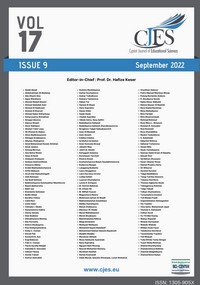Attitude and social context in MALL classes: A view from midwifery learners
Attitude and social context in MALL classes: A view from midwifery learners
Author(s): Khoirul Anwar, Agus Wardhono, Langgeng BudiantoSubject(s): Foreign languages learning, Language acquisition, Adult Education, ICT Information and Communications Technologies, Distance learning / e-learning, Pedagogy
Published by: Birlesik Dunya Yenilik Arastirma ve Yayincilik Merkezi
Keywords: Attitude; social context; MALL; Midwifery Class;
Summary/Abstract: Previous studies on learning technology have focused on attitudinal dimensions and social aspects restricted to the general purpose of language classes. This obviously provides prospects for further investigation, particularly for adult learners with specific goals. Based on this rationale, this study seeks to examine the impact of Mobile Assisted Language Learning (MALL) on the attitudes and social level of the learner perspective in a Midwifery classroom. This study also explores the level of significance impact and hypothetical correlation that occurs between attitudes and social contexts. This study employs attitude questionnaires (personal, learning environment, and behavioral) and social context questionnaires (student-student relationships, formal student-instructor relationships, informal student-instructor relationships, and students as instructors). By obtaining 310 respondents who have participated in the MALL program in the Midwifery class, the data have been analyzed using the Paired Sample T-test, and Pearson Correlation Coefficient (SPSS version 25 is utilized). The results show that the learners’ attitude and their level of social context achieved significant changes after the MALL class. However, the correlation between attitude and social level revealed a low correlation. However, several sub-factors in both aspects are incredibly and strongly correlated, especially in the aspects of anxiety, self-efficacy, self-regulation, and usefulness affecting aspects of both formal and informal student-instructor relationships. Suggestions are welcomed for further correlation tests at the sub-factor level on diverse subjects (different gender and field studies).
Journal: Kıbrıslı Eğitim Bilimleri Dergisi
- Issue Year: 17/2022
- Issue No: 09
- Page Range: 3048-3066
- Page Count: 19
- Language: English

